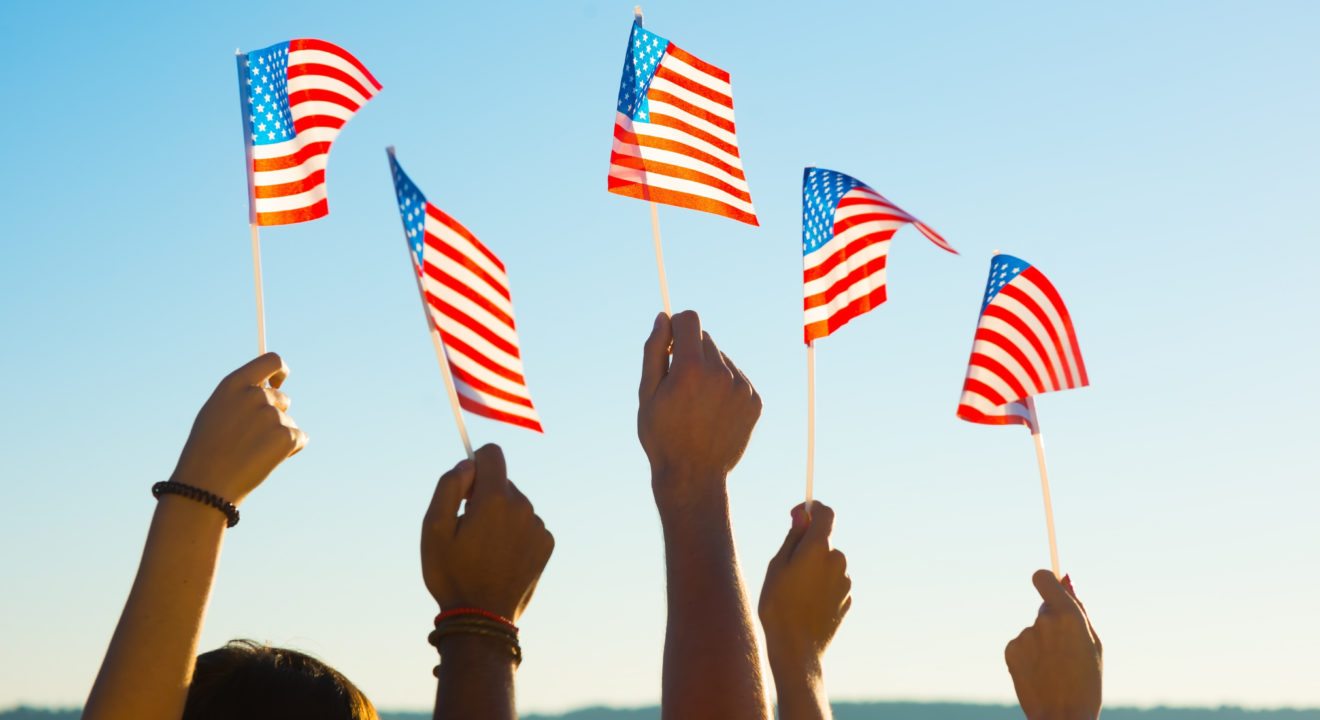Politics December 23, 2016


How do you feel about your relationship to your country, the United States, right now? Maybe you’re still reeling from Donald Trump’s victory over Hillary Clinton or his recent governmental appointments. Or maybe you’re feeling more patriotic than ever.
Whatever way the recent presidential election has affected you, it has brought politics into the American spotlight. One of the questions receiving new attention lately? How men and women become nationalists.
By definition, nationalism occurs when people feel loyal to and proud of their country, feeling that their country is better and more important than others.
Nationalism shouldn’t be confused with patriotism, however – though not everyone agrees. Some believe that nationalism and patriotism are interchangeable, but the term “patriotism” is preferred in the U.S., which views nationalism in a negative light. However, others claim that compared to patriots, nationalists:
Debates also exist over whether nationalism is harmful or beneficial to a nation. George Orwell once famously said that nationalism is “the worst enemy of peace.” Yet Lloyd Kramer, author of “Nationalism in Europe and America” disagrees, saying that “when people feel committed to larger communities or interests or to ideas of human rights and political progress, for example, nationalism can contribute to a sense of hope about the future.”
READ MORE: NFL: Patriotism and Protest
Basically, patriotism and nationalism have plenty in common. They both indicate a person’s relationship to their country. They both could be exhibited by men and women singing “God Bless America” at a baseball game or waving flags on the Fourth of July. Yet, patriotism tends to involve showing love for one’s country in a more passive manner while nationalism consists of showing love for one’s country in an active, political way.
So are those who possess such an immense passion for their homeland born with it or do they acquire it as they get older? Obviously, there’s no cookie-cutter formula, but one could assume that the answer lies seems to lie in nurture as opposed to nature.
In the past, many assumed that children automatically assumed their parents’ political beliefs. However, a 2015 study revealed that parents affected their children’s politics in surprisingly different ways. Half of polled children either rejected or misidentified their parents’ party identification. However, the more politics was discussed in the home, the more likely children would identify – but not necessarily agree with – their parent’s political beliefs.
Political beliefs and attitudes – including nationalism – are also impacted by a variety of other factors. For instance, one’s gender, religion, race and ethnicity and region of living reportedly all influence a person’s political sway.
Why is that? Just imagine: If you grow up around cultured parents who instilled in you the importance of travel and worldly experience, you would likely carry these values throughout your life. If, on the other hand, you grow up in a tight-knit community of nationalists and attend a high school that constantly emphasizes those same beliefs, nationalism will probably remain a part of your political DNA.
READ MORE: Mark Wahlberg Says People Don’t Care About Celeb Political Opinions
Extreme nationalism can also emerge from a place of fear and insecurity. As a result, nationalism not only emerges from our immediate surroundings, but also from the political, social and economic forces prevalent at the time.
With the recent election of Donald Trump, politics may seem to get more complex by the minute. When it comes to nationalism, politics isn’t any simpler. Nationalism is surrounded by controversy – from its definition to its relationship to patriotism to its positive or negative effects – and there is no “10-step-plan” that describes how people become nationalists. However, the data reported so far seems to show that nationalism isn’t just an individual belief system. Instead, nationalism emerges as a result of a person’s nearby personal and societal surroundings.